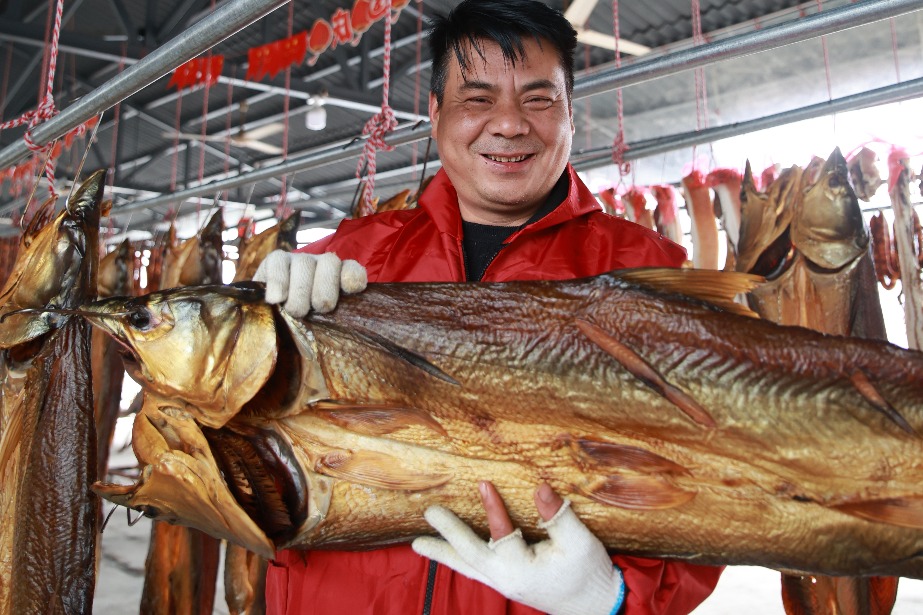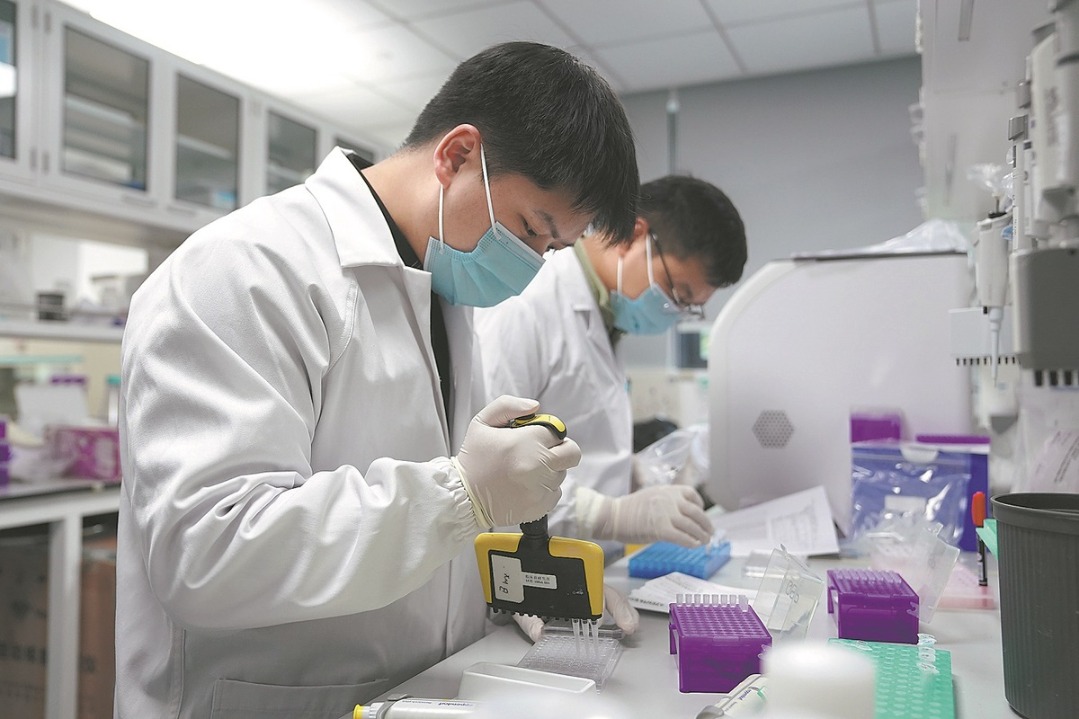Zhaoqing's Greentreasures
Rapid integration of the Greater Bay Area has driven the surge in Chinese mainland vegetable exports to Hong Kong, enabling consumers in the SAR to enjoy fresh produce in the shortest possible time. Zhang Tianyuan reports from Zhaoqing.


Hong Kong people have a penchant for everything fresh. And they have the deeper integration of the Guangdong-Hong Kong-Macao Greater Bay Area to thank for greener, fresher vegetables arriving on their dinner tables from the Chinese mainland.
It now takes less than 24 hours from the picking of the leafy produce on the sprawling agricultural farms of Zhaoqing - a mid-western city in Guangdong province - to them being cooked and served in the Hong Kong Special Administrative Region, made possible by the rapid development of logistics, as well as food storage facilities, that have ensured the tiptop quality of vegetables, fruits and teas.
Zhaoqing's core agricultural industries include the cultivation of vegetables, fruits and teas, contributing a significant portion of the 92 percent of Hong Kong's vegetable imports from the mainland. As of September, the city boasted 700 square kilometers of farmland for cultivating vegetables, according to official data.
The Zhaoqing municipal government pledged five years ago to transform the Huaiji county of Zhaoqing into a distribution base for green agricultural and subsidiary products in the GBA.
Having weathered the COVID-19 pandemic for three years, Huaiji is now home to five enterprises qualified to export agricultural products to Hong Kong, with six registered export centers and three processing plants.
According to Ma Naiyao, general manager of Huaji-based Quanfa Agricultural Development Co, the enterprise has four bases in the county for planting vegetables and fruits to meet Hong Kong's seasonal needs. These include watermelons, pumpkins, squashes, bitter melons, hairy melons, sweet corns and green beans. The bases span more than 2.4 square kilometers, exporting at least 20 metric tons of vegetables to Hong Kong every day.
After being harvested at the farms, vegetables undergo an immediate eight-hour precooling process in cold storage facilities to preserve their freshness. The products then go to a processing and testing center in neighboring Dongguan to ensure quality standards. The final leg of their shipment from Dongguan to Hong Kong takes about 90 minutes.
With rising demand for daily fresh vegetables from Hong Kong, the company's supplies have gone up by 3 percent annually in the past five years. But Ma said the industry has been hampered by difficulties in recruiting skilled cross-border drivers, as well as surging oil prices that are pushing up the company's operating costs.
"The problem is exacerbated by industry players fiercely competing for experienced drivers," said Ma. "A cross-border driver needs to know more than just driving. The driver must also have some knowledge of vehicle maintenance, be acquainted with transportation routes, and be able to deliver goods in the shortest possible time. But training new drivers requires a lot of time, human resources and financial investment, thus adding to the costs."
In the past three years, the risks of COVID-19 infection and stringent social distancing measures forced many cross-border drivers to seek alternative jobs, making the labor shortage in the transportation sector more critical.
In January 2023, the mainland authorities lifted cross-border restrictions, allowing goods vehicle drivers to reenter the mainland, and restored pre-pandemic management protocols for cross-border transport.
Guangdong Quannong Agricultural Science and Technology Investment Co - Quanfa's parent company - has set up nearly 67 square kilometers of vegetable bases in various provinces, catering to the needs of major supermarkets in Hong Kong, including PARKnSHOP and AEON Stores.
Ma said the amount of vegetables and fruits exported to the SAR represents 50 percent of the company's total sales. "Overall, export prices tend to be more stable and offer better returns than the mainland market. In Hong Kong, prices for goods, measured and sold in jin, or 0.5 kilograms, fluctuate around 10 yuan ($1.40), while prices on the mainland range between one and three yuan per jin."
"This is due to the high consumption level and stringent quality standards," explained Ma. "For instance, the Hong Kong market requires that choy sum (a leafy vegetable), from the bud to the stem, be cut to between 12 to 15 centimeters, ensuring the vegetable is both green and tender."
In collaboration with Zhaoqing Customs, the local county government launched an inspection and testing center for agricultural and sideline products in Huaiji in 2020, serving the Greater Bay Area.
At the same time, the Zhaoqing government is hiring "village CEOs" to develop unique rural industries by leveraging local resources. By late December, 10 rural managers had been selected, and they will start work on 10 pilot programs covering all counties in Zhaoqing.
Hou Qingshan, one of the village CEOs chosen, said it is essential to strengthen communication with local village committees and agricultural companies to build up mutual understanding before moving on to the next phase of their work.
Village professional managers offer advanced management services and scientific technology in the production process, said Ye Feifei, a lecturer at the Party School of Zhaoqing Municipal Committee of the Communist Party of China.
Rural production today is no longer merely "physical labor", but has become "intellectual work" that demands comprehensive qualities, she said.
With a monthly base salary of 6,500 yuan, village CEOs' performance appraisals are based on their achievements in rural operations.
Contact the writer at tianyuanzhang@chinadailyhk.com









































